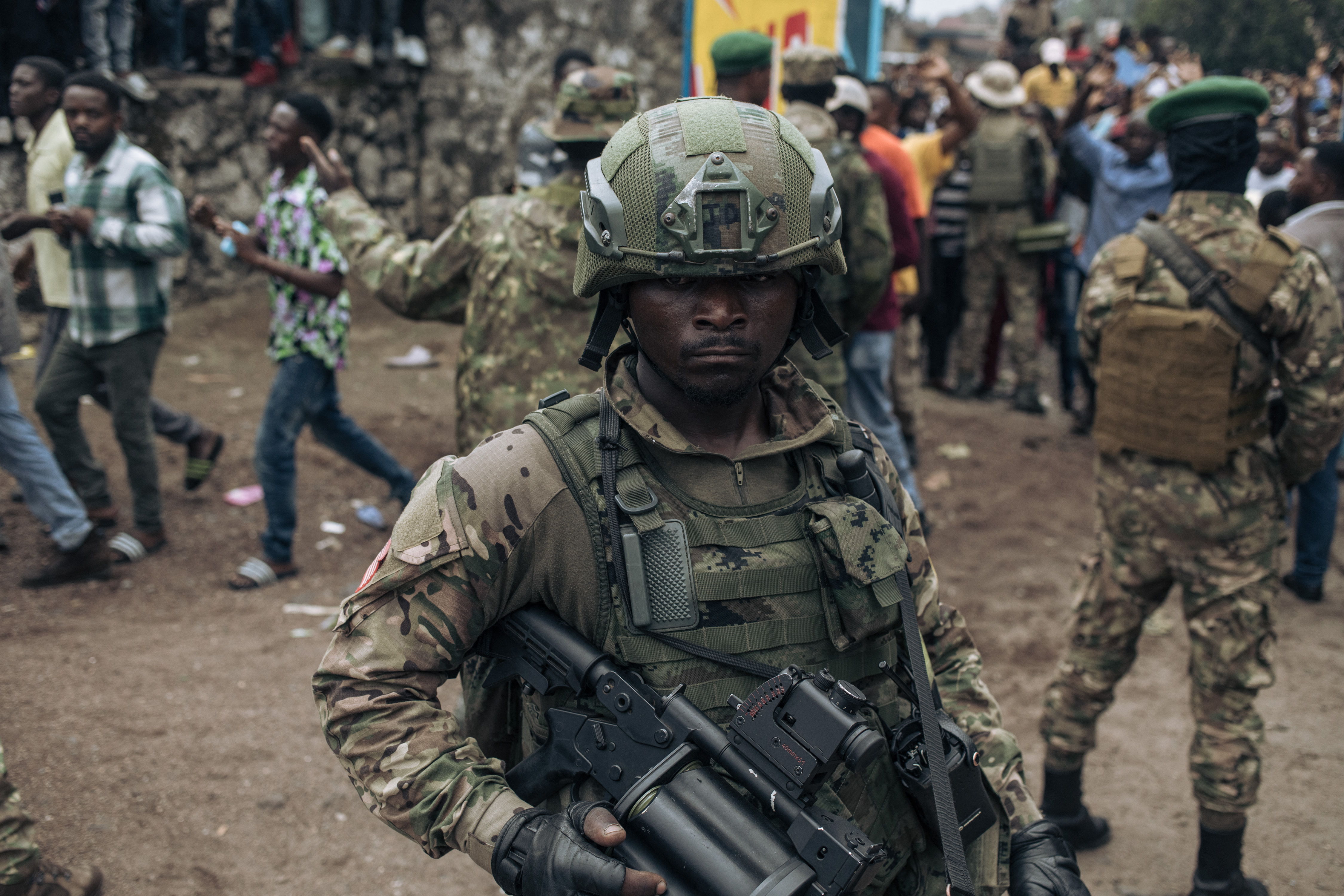M23 Rebels Resume Attacks in DR Congo Following Brief Ceasefire
In a significant escalation of ongoing tensions, the Rwanda-backed M23 rebel group has resumed attacks in the eastern Democratic Republic of Congo (DRC) after a two-day pause. The renewed violence comes amid rising international concern over the humanitarian crisis in the region and the ongoing instability fueled by rebel activities.
The M23, or March 23 Movement, launched fresh offensives against Congolese government forces in North Kivu Province, an area that has seen relentless conflict in recent months. According to local reports, the fighting has displaced thousands of civilians, adding to the already dire conditions faced by communities in eastern Congo. Humanitarian agencies have expressed alarm over the worsening situation, as many displaced residents lack access to food, clean water, and medical care.
Background of the Conflict
The M23 rebel group is a militia largely composed of former members of the Congolese army who mutinied in 2012. The group has been accused of committing serious human rights abuses, including massacres and sexual violence, in its quest to gain control over resource-rich areas in the DRC. Despite being defeated in 2013, the M23 re-emerged in late 2021, launching a series of attacks and reigniting conflict in the region.
The Congolese government has repeatedly accused neighboring Rwanda of supporting and supplying the M23 rebels, allegations that Rwanda denies. However, several independent investigations, including reports from the United Nations, have found credible evidence linking Kigali to the group. This has further strained relations between the two countries, with the DRC calling on the international community to intervene and pressure Rwanda to cease its alleged support for the militia.
Humanitarian Crisis Worsens
The resurgence of M23 attacks has exacerbated an already critical humanitarian crisis. Over 5.8 million people have been displaced in the DRC, making it one of the largest displacement crises in the world. The majority of those affected are in the eastern provinces, where dozens of armed groups continue to operate.
Humanitarian organizations have warned that renewed fighting will likely push more people into displacement camps, where resources are stretched thin. The United Nations Office for the Coordination of Humanitarian Affairs (OCHA) has called for increased funding and international support to address the urgent needs of displaced populations.
Calls for a Ceasefire
Regional and international actors have urged the M23 to halt its offensive and engage in peace talks. The East African Community (EAC), which has been mediating between the DRC and rebel groups, recently deployed a regional force to stabilize the area. However, its effectiveness has been questioned, as violence continues unabated.
The African Union (AU) and the United Nations have also reiterated their calls for an immediate ceasefire and a negotiated solution to the conflict. In a statement, the UN urged all parties to respect international humanitarian law and prioritize the protection of civilians.
Implications for Regional Stability
The renewed fighting by the M23 poses a significant threat to regional stability. The DRC, already plagued by decades of conflict, faces immense challenges in its efforts to establish peace and security. Moreover, the alleged involvement of Rwanda in supporting the rebels has heightened tensions between the two nations, raising fears of a broader regional conflict.
As the situation unfolds, the international community is under growing pressure to take decisive action to address the root causes of the conflict, hold those responsible accountable, and support the Congolese government in restoring stability.
Conclusion
The resumption of M23 attacks underscores the fragile security situation in eastern DRC and the urgent need for a comprehensive and coordinated approach to resolve the crisis. With millions of lives at stake, the region cannot afford further delays in addressing the conflict and its devastating humanitarian impact.
Source : Swifteradio.com


